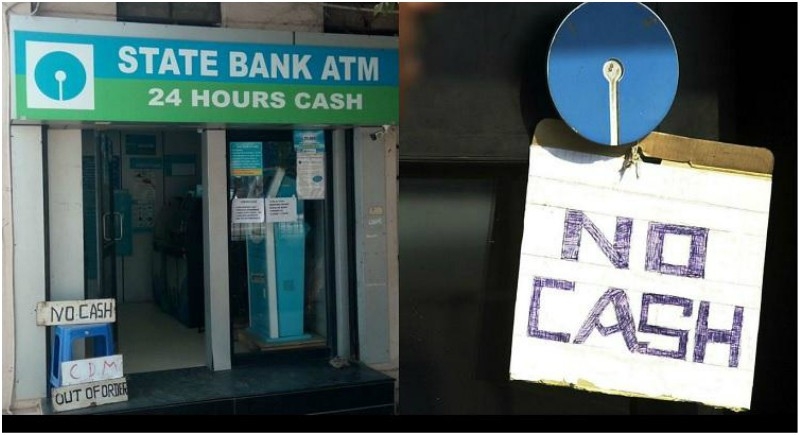Assuaging to #CashCrunch, Finance Minister comes to rescue, says ‘temporary shortage is being tackled quickly’
New Delhi, April 17: Responding to the cash crunch reported in different parts of the country, today Finance Minister Arun Jaitley said “there is more than the adequate currency in circulation and the same is available with banks. The shortage is 'temporary' and that it has been caused due to ‘sudden and unusual increase’ in demand in some parts of the country.

Several parts of India have been facing cash crush in ATMs this week. Earlier on Monday, there were complaints of cash shortage in eastern Maharashtra, Bihar and Gujarat. This was almost a month after ATMs in Andhra Pradesh and Telangana had run dry.
Even today morning, similar reports started emerging from different parts of the country, following which the Finance Minister Arun Jaitley issued the statement.
According to RBI data, currency in circulation as on April 6 was Rs 18.17 Lakh Crore, which is close to the number at the time of demonetization. While the growth in currency has been almost flat (compared to the day before demonetization), the need for currency has shrunk considerably because of the high level of digitization.
Since the amount of currency put out by the Reserve Bank of India (RBI) and government printing presses is adequate for normal transactions, bankers believe there is hoarding of the Rs 2,000 notes. Nearly Rs 5 lakh crore worth of Rs 2,000 notes were printed after demonetisation.
The demand for currency is also reflected in the slowdown in deposit growth. During the year ended March 2018, bank deposits grew by a measly 6.7% compared to 15.3% in 2016-17. During the same period, bank credit grew 10.3% compared to 8.2% in the comparable period in the previous year.
Last week, some parts of Eastern India including Bihar had seen a cash crunch with ATMs running dry in these states. The government and Reserve Bank of India (RBI) officials had met and attributed the shortfall to unusual local demand in a few states and instructed banks to improve their cash management.